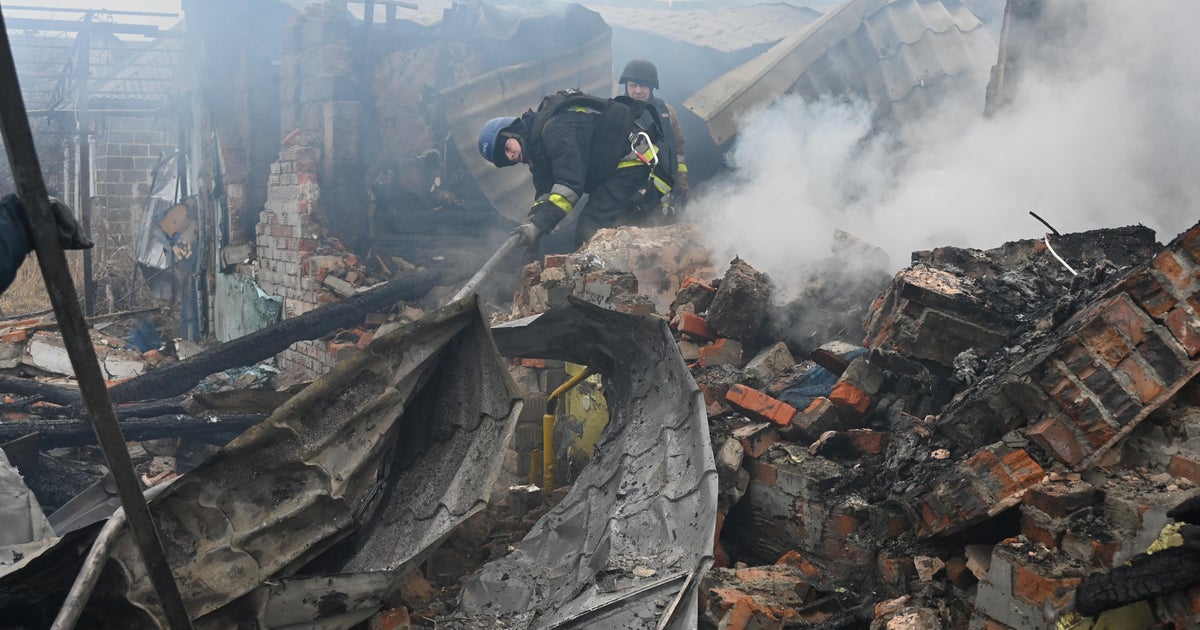2 Kansas men arrested on charges of selling "sophisticated" aviation tech to Russia amid Ukraine war
The Justice Department on Thursday arrested two Kansas men on allegations that the pair illegally exported "sophisticated" aviation-related technology to Russia and provided repair services for the equipment.
Cyril Gregory Buyanovsky and Douglas Robertson are charged with conspiracy, exporting controlled goods without a license, falsifying and failing to file electronic export information, and smuggling goods in violation of U.S. law.
The charges come as the U.S. has drastically ramped up sanctions and financial penalties on Russia since its invasion of Ukraine began on Feb. 24, 2022. Along with thousands of sanctions on people and firms, export controls on the Kremlin are meant to limit access to computer chips and other products needed to equip a modern military.
The Justice Department says Buyanovsky and Robertson owned and operated KanRus Trading Co., which allegedly supplied aircraft electronics to Russian companies and provided repair services for equipment used in Russian-manufactured aircraft.
The indictment says that since 2020, they conspired to evade U.S. export laws by concealing and misstating the true end users and destinations of their exports and by shipping equipment through third-party countries.
Prosecutors allege that in April 2022, Robertson sent a message to a Russia-based customer that "things are complicated in the USA" and that "[t]his is NOT the right time for [more paperwork and visibility]." The following three months, the defendants allegedly shipped avionics through Armenia and Cyprus to Russia without obtaining the required licenses, the Justice Department said.
They face up to 35 years in prison if convicted. Lawyers for Buyanovsky and Robertson couldn't be identified from the provided documents, and the Justice Department didn't immediately respond to a request for their information.
The FBI and the Commerce Department's Office of Export Enforcement are investigating the case.
Matthew S. Axelrod, assistant secretary for export enforcement at the Commerce Department's Bureau of Industry and Security, said at an American Bar Association event in Miami Thursday that state actors like Russia, China, Iran and North Korea are trying to "take advantage of rapid advances in technology," adding that sensitive technologies being sent to these countries are "top of our list from an enforcement perspective."
Since the anniversary of the Russian invasion of Ukraine, U.S. officials have said they would increase enforcement and sanctions on people and entities that assist Russia in the procurement of weaponry and technology that would bolster its military.
U.S. Secretary of State Antony Blinken and Russian Foreign Minister Sergey Lavrov talked briefly Thursday at a meeting of top diplomats from the Group of 20 nations in the first high-level meeting in months between the two countries.
CBS News correspondent Imtiaz Tyab reported Thursday from Kyiv that all eyes quickly shifted to China's foreign minister, who met later on the sidelines of the same G-20 gathering with Lavrov. After their meeting, China's foreign ministry released a statement which shed no new light on whether Beijing might answer Moscow's request for lethal support in the form of weapons or ammunition for Putin's war.
U.S. officials have said Beijing is considering adding such support to its current non-lethal aid for Russia's war machine, but China has not given any indication of its plans. Last week, Beijing published a vague 12-point plan to end the war in Ukraine, but Putin said "now was not the time" for such discussions.



